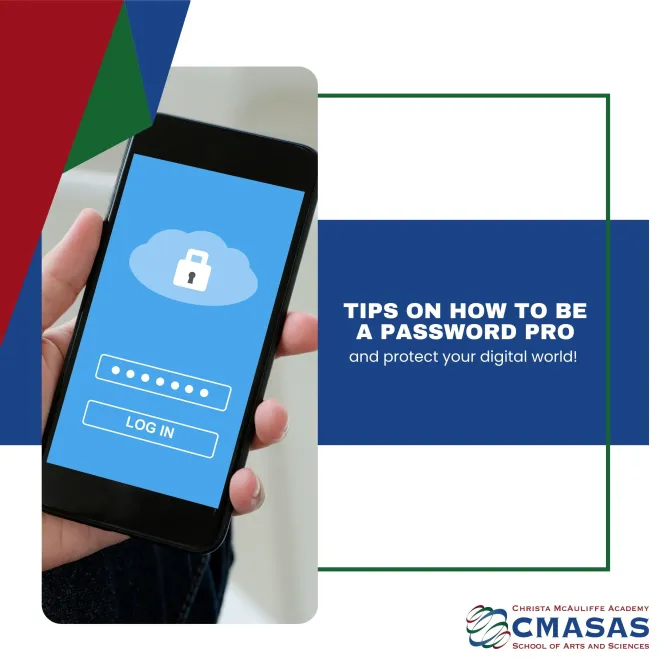TIPS TO BE A PASSWORD PRO AND PROTECT YOUR DIGITAL WORLD!

You have a secret identity online. It’s the “you” who plays games, chats with friends, and does schoolwork on the computer. Your passwords are the secret keys that protect that identity!
Just like a superhero must protect their true name, you must protect your passwords. The problem is, lots of people use easy-to-guess passwords or the same one for everything. That’s like using the same little key for your bike, your front door, and your treasure chest—super risky!
Let’s learn how to be a password pro and keep your digital world safe.
The Old Way vs. The New Way
You might have heard the old rules for passwords: “Use a capital letter, a number, and a symbol!” That’s how we ended up with boring ones like P@ssword123!. Guess what? Those are actually easy for computers (and bad guys) to figure out. They know all those tricks!
The new rule is much simpler—and way stronger. It’s all about length.
Think of it like this:
- A short, tricky password is like a tiny lock.
- A long password is like a giant door with many locks.
The longer one is way harder for a computer to break through.
That’s why we use passphrases—a string of random words put together.
Which do you think is better?
Soccerball2024!
Correct-Horse-Battery-Staple
The passphrase wins every time! It’s easy to remember, but nearly impossible for a computer to guess.
Your Best Friend: The Password Manager
By now you probably have a ton of accounts—school apps, games, email, and more. It’s impossible to remember a unique passphrase for each one.
That’s where a password manager comes in. Think of it as a digital super-locker. You only need to remember one key (your “master password”). Inside, it safely keeps all your other passwords and can even make new super-strong ones for you.
Many password managers are free or have free versions you can use with your family.
The Second Lock: Multi-Factor Authentication (MFA)
This is like a secret knock for your account. Even if someone steals your password, they can’t get in without the second lock.
That extra layer might be:
- A code sent to your phone
- A fingerprint scan
- A special app that gives you codes
Whenever you can, turn on Multi-Factor Authentication—it’s a superhero-level defense move.
Password Pro Tips: The DOs and DON’Ts
DO:
- Use a password manager
- Use a different password for every account
- Use long passphrases
- Turn on Multi-Factor Authentication whenever you can
DON’T:
- Use your name, birthday, pet’s name, or other personal identifiers
- Share your password with friends (even best friends!)
- Write passwords on sticky notes or notebooks
- Click on strange links in emails—go to the website yourself instead.
By following these steps, you’ll be a true Password Pro—keeping your online identity as safe as any superhero’s secret!
